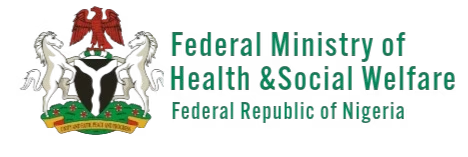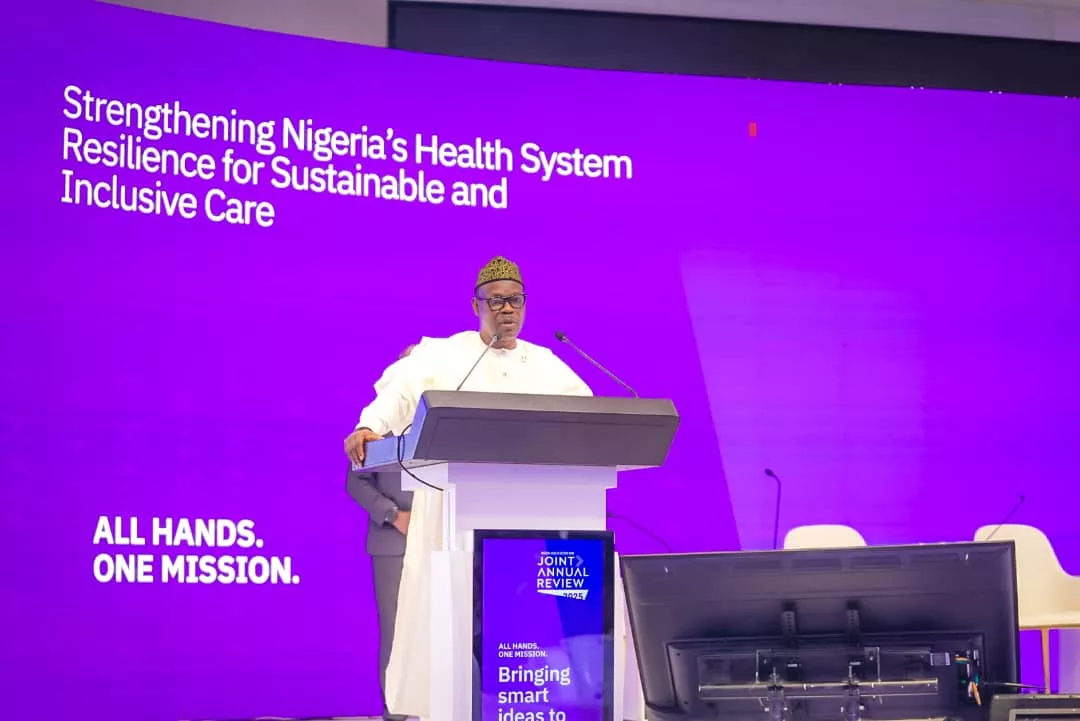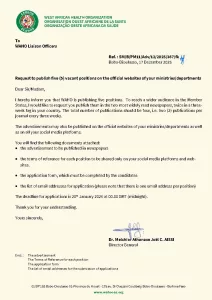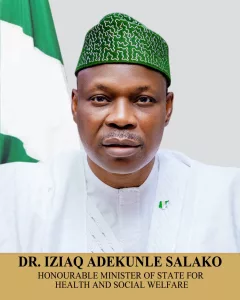The Federal Government has reiterated its resolve to strengthen Nigeria’s health system to ensure resilience, sustainability, and inclusiveness in healthcare delivery, in line with President Bola Ahmed Tinubu’s Renewed Hope Agenda.
The Minister of State for Health and Social Welfare, Dr. Iziaq Adekunle Salako, made this known in his inaugural address at the second day of the 2025 Nigeria Health Sector-Wide Joint Annual Review (JAR), held at the Transcorp Event Center, Maitama, Abuja, with the theme “Strengthening Nigeria’s Health System Resilience for Sustainable and Inclusive Care.”
Dr. Salako said the administration is implementing coordinated interventions under the Nigeria Health Sector Renewal Investment Initiative (NHSRII), anchored on a Sector-Wide Approach (SWAp) to ensure efficiency, synergy, and sustainability in delivering healthcare to all Nigerians.
He noted that while the nation has recorded measurable progress in maternal and child health, immunization, and health insurance coverage, more remains to be done to achieve the country’s universal health coverage (UHC) and health security goals.
According to him, the 2023 Nigeria Demographic and Health Survey (NDHS) shows a drop in the Maternal Mortality Ratio to 512 deaths per 100,000 live births, down from 576 in 2018, and Under-5 Mortality Rate to 110 deaths per 1,000 live births, from 132 in 2018. He added that Skilled Birth Attendance has improved to 53%, Full Immunization Coverage to 39%, and Modern Contraceptive Prevalence to 20%.
However, the minister expressed concern that health expenditure remains at 5.2% of GDP, far below the 15% Abuja Declaration target, while out-of-pocket spending stands at 71%, a situation that continues to push millions into poverty.
“Our over 30,000 primary healthcare centres are still not optimally functional. The doctor-to-population ratio is 1:5,000, against the WHO’s 1:600 standard, and most health workers remain concentrated in urban areas,” Salako said.
He commended the strides made under key programs such as the Basic Health Care Provision Fund (BHCPF), National Health Insurance Authority (NHIA) Act 2024, and Primary Health Care revitalization, noting that over 20 million Nigerians have been enrolled in health insurance coverage through formal and vulnerable group programs.
Other achievements highlighted include:
78% absorption rate of BHCPF funds in 2023, up from 45% in 2019.
Improved HIV treatment coverage with 1.78 million people living with HIV now on ART and 96% of HIV-positive pregnant women receiving PMTCT services.
80% tuberculosis notification rate, 85% treatment success, and expanded diagnostic infrastructure with 126 GeneXpert sites.
Distribution of 63 million insecticide-treated nets and prevention of 18 million malaria cases annually.
57% Penta-3 immunization coverage and sustained zero cases of wild poliovirus since 2020.
The minister also cited ongoing initiatives such as the Power for Health Initiative to provide reliable electricity in hospitals, the Nigeria Digital Health Initiative (NDHI) to strengthen data management, and the Health Workforce Registry to address staffing imbalances and migration.
“Between 2023 and now, over 37,000 health workers have been employed, and over 70,000 have received on-the-job training. We are transforming ‘brain drain’ into ‘brain gain’ through diaspora engagement and retention incentives,” he added.
In the next steps, Dr. Salako said the government will intensify health financing reforms, expand mandatory insurance, and scale up PHC upgrades across all states. He reaffirmed the administration’s commitment to digital transformation, supply chain transparency, and climate-resilient health infrastructure using renewable energy systems.
He urged states, partners, and stakeholders to strengthen collaboration and accountability mechanisms through platforms like the JAR and National Council on Health, emphasizing that achieving health resilience requires collective action.
“Health system resilience is not built overnight. It demands sustained investment, political will, technical excellence, and accountability. Only healthy people can produce a prosperous, secure, and great Nigeria,” Salako declared.
The 2025 JAR brought together federal and state health officials, development partners, civil society, and technical experts to review sector performance and align actions for accelerated progress toward universal health coverage and the Sustainable Development Goals.
Alaba Balogun
Deputy Director/ Head, Information
& Public Relations
14 November 2025





